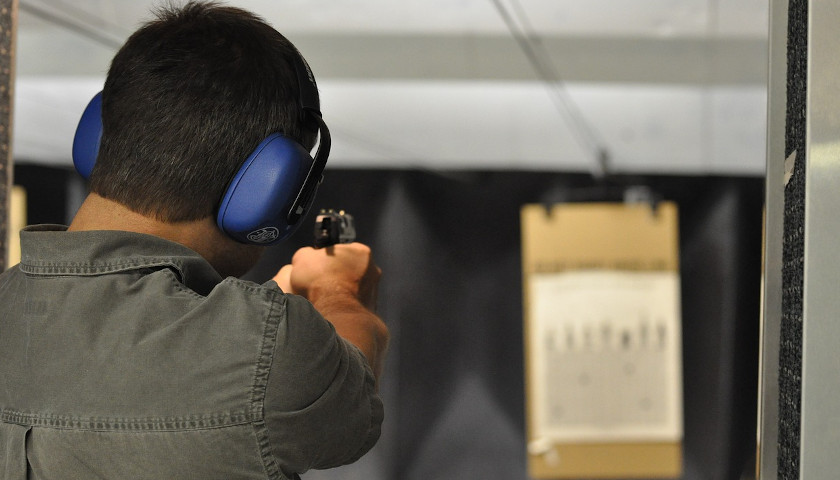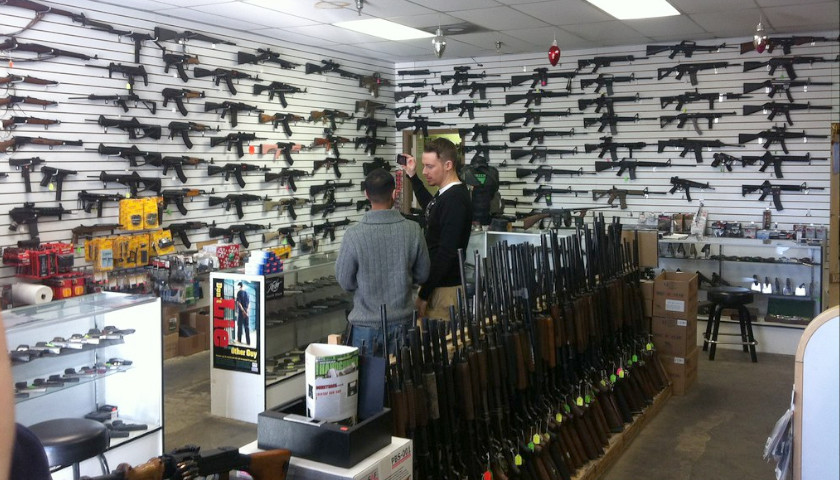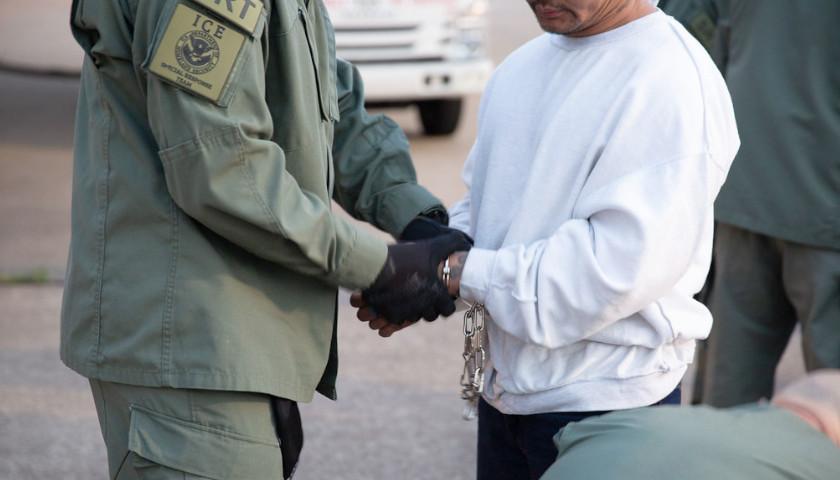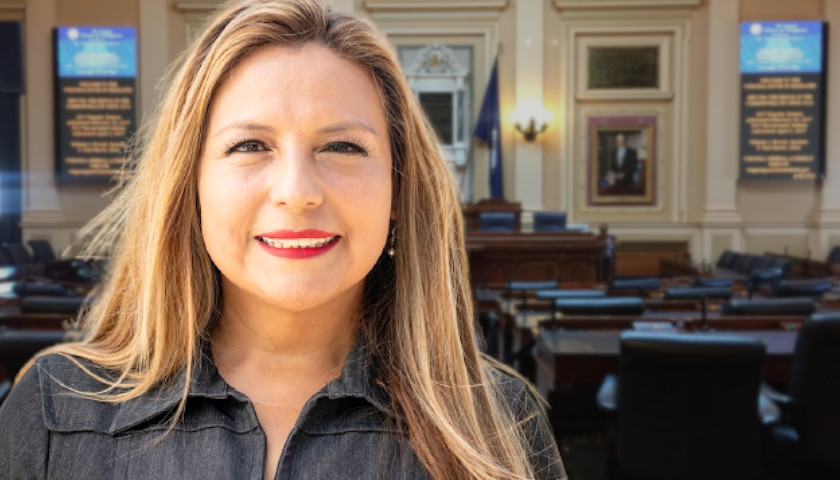The Virginia House of Delegates sent four gun bills to the Senate over the past week, and is scheduled to vote on two more on Monday.
Introduced by lieutenant governor candidate Delegate Mark Levine (D-Arlington), HB2081 makes it a class one misdemeanor to possess firearms within 40 feet of any building used as polling place. The ban starts one hour before and ends one hour after the location is used as a polling place.
Levine said the bill was focused on preventing voter intimidation. “This bill protects both voters and election workers from intimidation. Those with guns don’t make the rules. Voters do,” he tweeted.
The House passed the bill 53 to 47 on Monday. The bill is now in Senate committee for consideration.
Delegate Suhas Subramanyam (D-Loudoun) introduced this bill, which allows schools to ban guns from non-school zone property owned or leased by the district.
“Under current law, localities already have authority to do this in their administrative offices, but school boards do not. For instance, here in Loudoun County, the school board is not able to set policies for its administrative buildings where it holds school board meetings,” Subramanyam said on the House floor on Tuesday.
The House passed the bill on Wednesday, 55 to 44. It is now in committee in the Senate.
This bill extends the background check waiting period to buy a firearm from three to five days.
“Individuals who buy a gun from a licensed dealer have to undergo a background check. Law enforcement officials only have three days to complete this check. If the background check isn’t completed in time, dealers are allowed to sell the gun anyway,” bill sponsor Democratic Co-Whip Delegate Alfonso Lopez (D-Arlington) said on the House floor on Tuesday.
Lopez said most firearms background checks are completed within seconds, but 10.5 percent of cases require further review by federal agents, leaving a possibility that a firearm could be sold to someone after three days even though they are not allowed to possess a firearm.
“The FBI has recommended extending the three-day period to allow agents more time to complete background check investigations and to reduce the number of prohibited purchasers who are able to purchase firearms by default,” Lopez said.
Lieutenant governor candidate Delegate Glenn Davis (R-Virginia Beach) asked how many firearms were sold that should not have been because the check was not completed by three days. Lopez cited statistics reporting that 235 firearm sales were completed to prohibited possessors after the background check took more than three days. Lopez said law enforcement did not have to get involved to retrieve any of the firearms that should not have been sold.
Davis, “I think the most important thing to recognize with this bill is that last year in 2020 we had one of the largest numbers ever when it came to background checks on firearms — 781,910 background checks,” Davis said. “An increase of over 300,000 background checks in 2020.”
Davis said, “The present system works.”
“What’s the alternative,” Davis asked. “Well, we actually delay the opportunity for someone to acquire their firearm, their constitutional right, for up to an additional four days if it goes across a holiday weekend.”
The bill passed 54 to 46 on Wednesday; it is now in committee in the Senate.
This bill, sponsored by Delegate Marcus Simon (D-Fairfax) makes it a felony to possess undetectable firearms and firearms that do not have serial numbers.
“Since the 1980s, we’ve had a ban on plastic guns and so it expands the definition of plastic guns to modernize it and account for the fact that we have 3D-printed guns and gun parts and include those in the definition of a plastic guns,” Simon said in the Public Safety Firearms subcommittee. “And then it says if you’re going to have a firearm, it has to have a serial number. That’s it.”
On Wednesday, the bill passed the House 52 to 48, and has been referred to the Senate Committee on the Judiciary.
Sponsor Delegate Kathleen Murphy (D-Fairfax) said in the House on Friday, “[The bill] allows banning firearms for class one misdemeanor assault and battery of a household member.”
An update to the bill addresses a concern voiced by Davis in the Public Safety Firearms Subcommittee, where he noted that the Virginia definition of household member is different from the federal definition. The latest draft of the bill specifically uses the federal definition, which includes spouses, parents, people who have had children together, and anyone who cohabits together.
The House is scheduled to vote on the bill on Monday.
This bill, sponsored by Levine, originally would have banned firearms and stun weapons on Capitol grounds. But in a video on social media, Davis warned that HB2295 would ban high powered flashlights with a flickering “stun” setting. Davis referred to a definition from Virginia Code § 18.2-308.1. “This is non-lethal force. This is an item that temporarily incapacitates someone trying to do harm to someone else,” he said.
An updated version of the bill no longer includes the language banning stun weapons. The House is scheduled to vote on the bill on Monday.
– – –
Eric Burk is a reporter at The Virginia Star and the Star News Digital Network. Email tips to [email protected].





